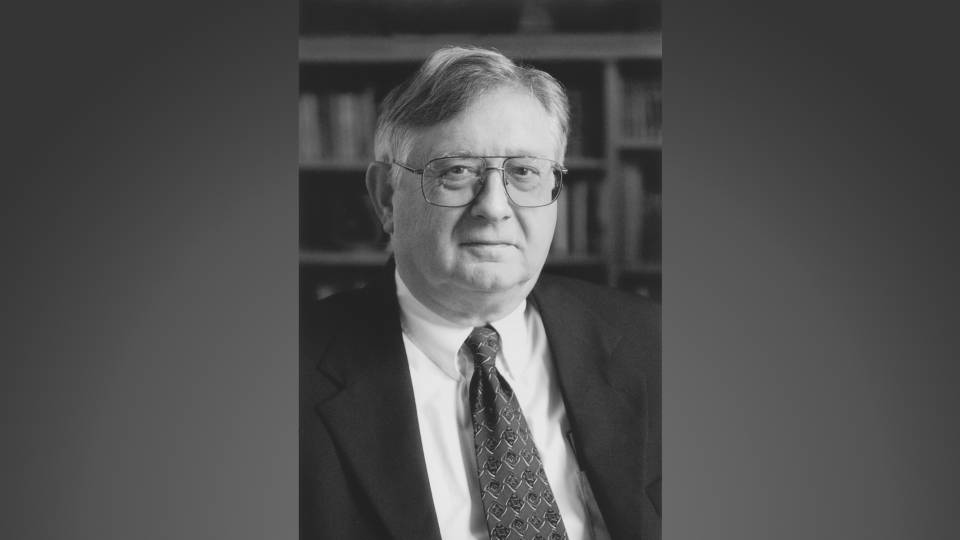John Wilson, dean of the Graduate School since 1994, has announced that he will resign from his administrative post at the end of the academic year in June.
He will return to the Department of Religion, where he has been a faculty member since 1960. A search for his successor will begin shortly, according to President Shirley M. Tilghman.
"For some time, I have planned to return to the Department of Religion after celebration of the Graduate School's centennial year in 2000-01," Wilson said. "My great regret is that I will not have a hand in planning for the future of the Graduate School as Princeton develops under President Tilghman's leadership. The next years promise to be a period in which the entire institution will flourish, taking advantage of its unique profile as a top-flight research university committed to educating not only superior undergraduates but the next generation of researchers, scholars and teachers in arts, sciences and engineering disciplines."
"The Graduate School has thrived under John Wilson's exceptional leadership," Tilghman said. "He has helped reshape graduate education with initiatives that have significantly increased financial support for doctoral students. Through outreach efforts he oversaw and carried out, the school has achieved a higher profile in recent years, both on campus and among alumni."
Wilson indicated that the increased support for doctoral students is the achievement of which he is most proud. This year, the University implemented an expanded fellowship program that provides all first-year doctoral students in the sciences and engineering with full tuition and a stipend to assist with living expenses. In addition, all doctoral students in the humanities and social sciences -- who already were supported through fellowships during the academic year -- are now eligible to receive summer stipends.
"Both former President (Harold) Shapiro and former Provost (Jeremiah) Ostriker recognized that, especially as research doctoral programs remain small in scale or even contract in size, competition for the most promising students will only become more severe," Wilson said. "Under their leadership and with the strong support of the trustees, Princeton has placed itself 'at the head of the class' through its first-year fellowships and its summer stipends."
"Of course," he continued, "we have also been concerned that our graduate students are well served with housing options and in terms of social facilities." This past year, the University announced plans to build additional graduate-student housing.
Wilson also noted the Graduate School's successful introduction of online application forms, stressing their increasing importance in light of the school's global reach.
He said some of his fondest memories are of events that took place during the year-long celebration of the Graduate School's centennial. Activities ranging from reunions to a lecture series to a gala dinner-dance drew many alumni and other members of the University community to the campus to mark the occasion.
A specialist in American religious history, Wilson plans to turn his attention back to several long-term projects that were "essentially interrupted" when he became dean of the Graduate School. His scholarly research has focused on religion and public life and religious thought.
Wilson served as assistant dean of the college from 1965 to 1972 and as chair of the Department of Religion from 1973 to 1980. He was named the Agate Brown and George Collord Professor of Religion in 1977. He also was master of Forbes College from 1983 to 1992.
Contact: Marilyn Marks (609) 258-3601
